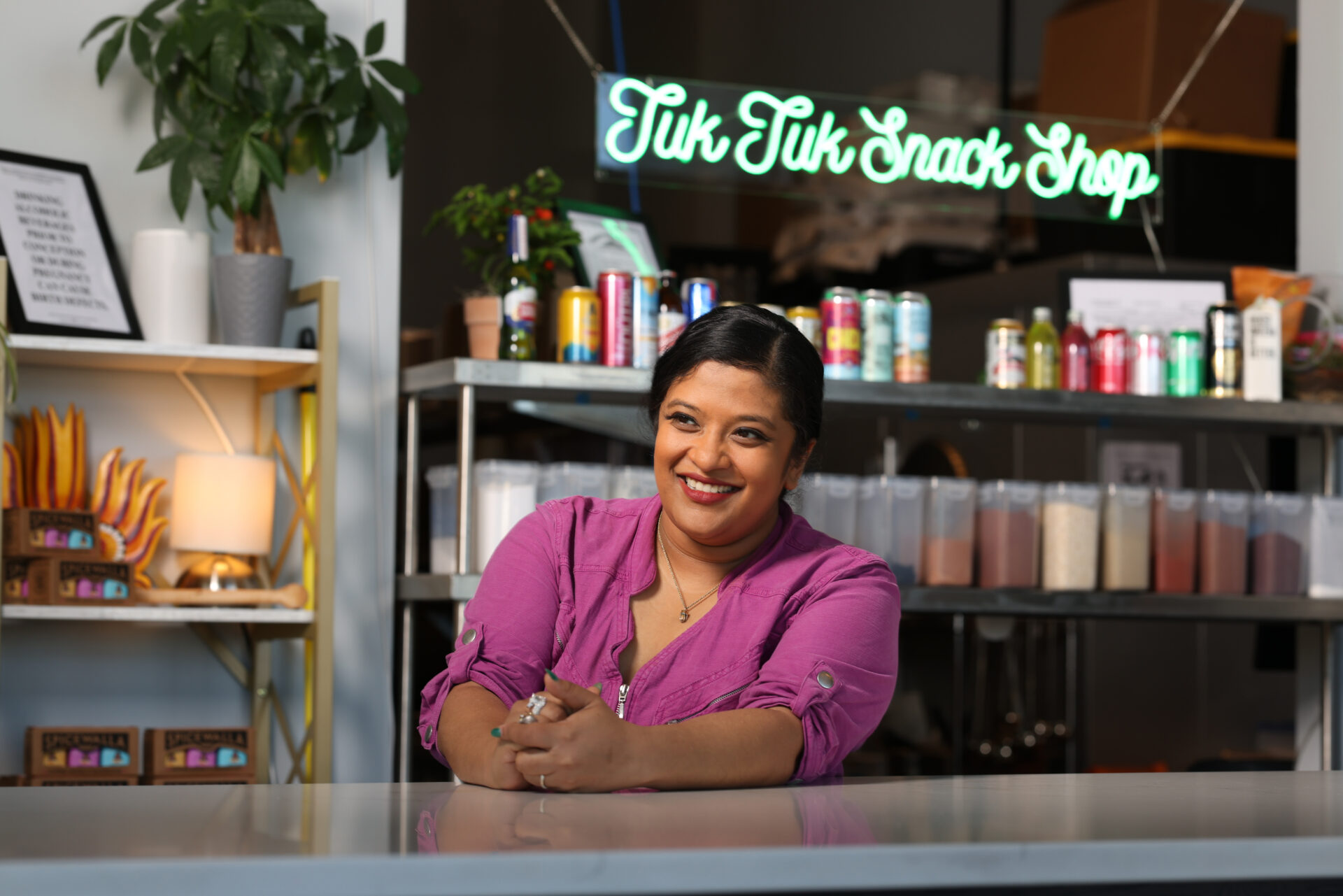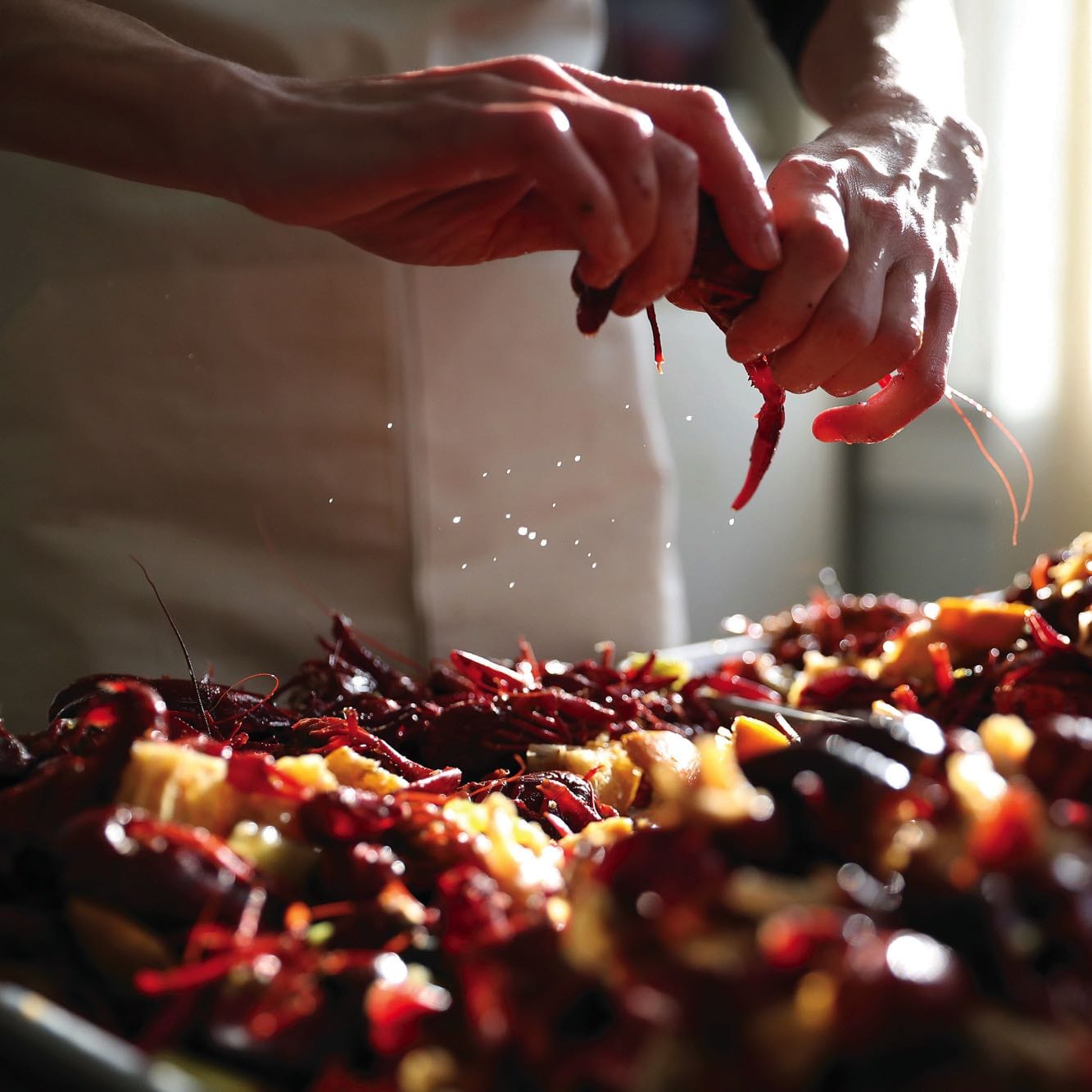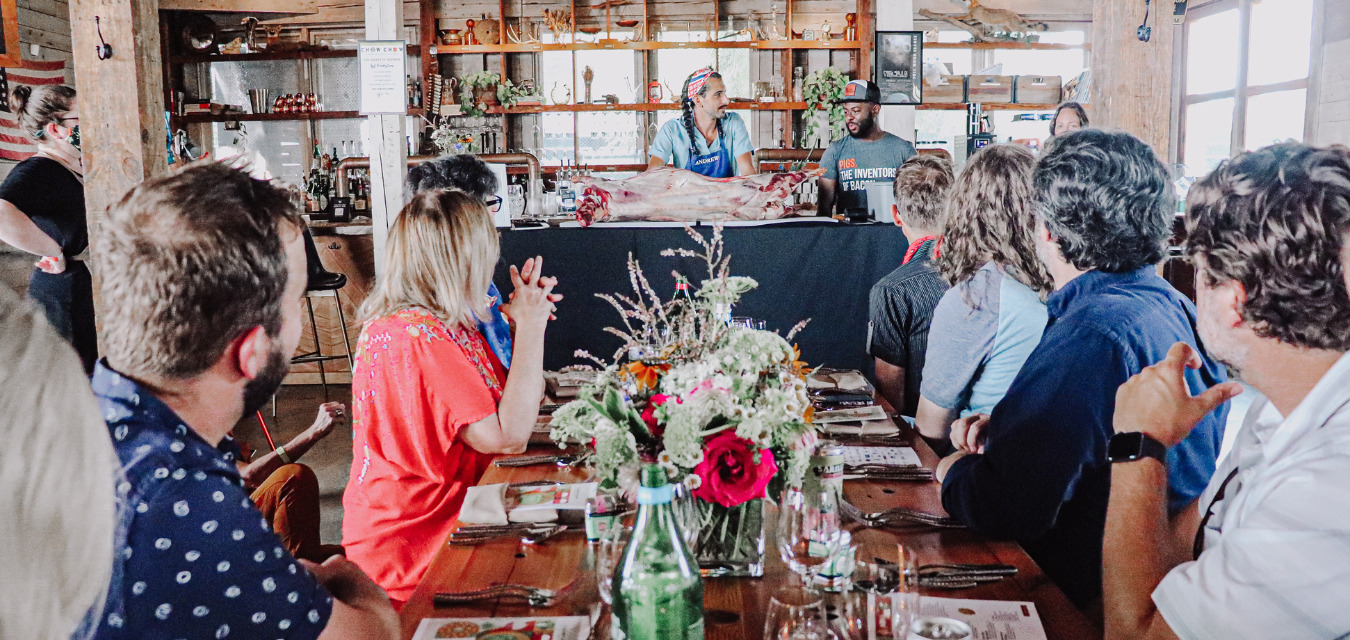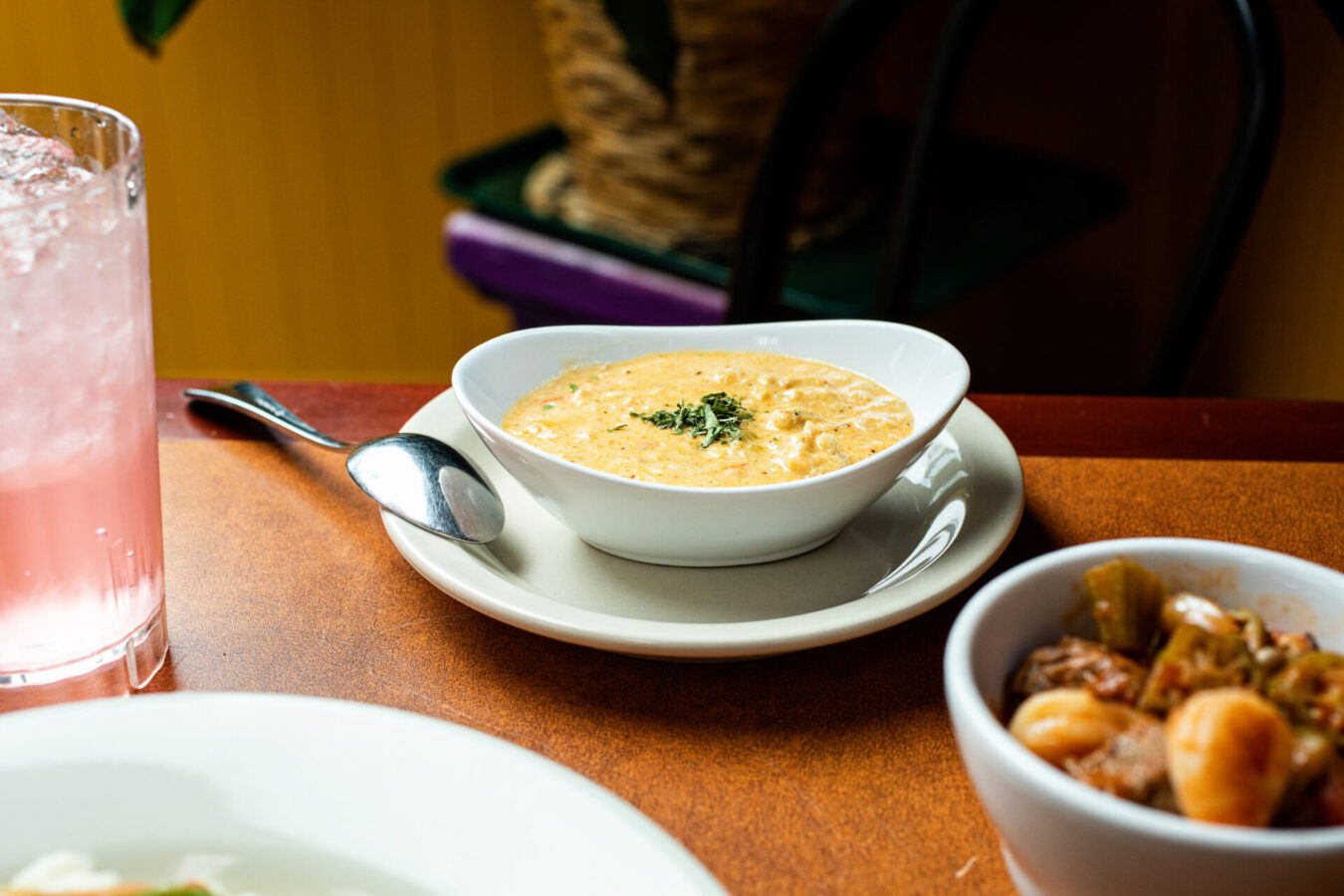After seven years of swearing up and down that I would not, could not, should not open a restaurant, I opened my first brick-and-mortar, Tuk Tuk Snack Shop, at the beginning of last fall. Shockingly, the right location came along at the right time, but my biggest question loomed large as I weighed signing the lease: Is it possible to staff my vision fairly and equitably in a time when good help is very, very hard to find?
Ultimately, my concern with a Sri Lankan-meets-Southern snack shop was assembling the right team—one that can cover my weaknesses while enhancing my strengths. My career in food, backward as it has been, is still tied to the road; as one of the few representatives of Sri Lankan cuisine in America, I aim to share the flavors I love wherever the opportunity arises—which might be anywhere in the country. I’ve always done this one meal at a time, and not usually in the same place. So, to now have a brick-and-mortar that must continue chugging along even if I’m sitting at the airport or cooking at an event? With food that is consistent, craveable, and replicable…without me?
The thought alone was enough to give me hives.
Suddenly, after years as a solo entity, reliance became my new reality. I knew I needed a team—and a strong one at that—but wondered if the desire to see my vision unfold was enough to pry the right people from their current jobs. For example, one of my management candidates had just built a team they were exceptionally proud of, yet I had an offer to start something new that was interesting enough for them to take the leap. I want to embrace a more open and balanced culture in our brick-and-mortar shop to make the model better for everyone who makes the well-oiled machine of a good restaurant hum.
The hiring landscape for independent restaurants is a bit bleak, and after spending time in dozens of kitchens over the past few years, I’ve found the ones that retained their key staff were very few and far between. While larger corporate entities are able to offer benefits, hiring bonuses, and other perks, a smaller, locally owned restaurant cannot come close to providing comparative benefits. Health insurance and time off are a rarity in the industry across the board, though, and I knew I wanted to offer those necessities to my crew as quickly as I could. I may not be able to provide everything I want at once, but I’d rather start with something small and build up as I can.
Once my team began to take shape, I noticed how industry challenges have affected mindsets on what work-life balance actually looks like in the restaurant world these days—suddenly things I viewed as a bare minimum were gratefully accepted, including sick time and paid time off for my management staff. As a contrast, early in my career I spent a few years onboarding recruits for a digital advertising agency where time off was plentiful, salaries were higher, and work-life balance, though often ignored, was at least considered.
I know it’s impossible to change everything we want and need out of the industry in one fell swoop, so my team helped me identify simple ways we can emphasize well-being as our priority. For example, we ensure our entire staff takes real breaks throughout their shifts—a bit of time to catch up with the world while sitting down and having a shift meal at a table and never over a trash can. The impact of such a small measure has been profound, with our crew showing enthusiasm for shifts where they realize they are an important and valued part of our team and culture.
In addition to day-to-day measures, we also offer half-paid health insurance and wellness benefits, including incentives and discounts for gym memberships and massages as negotiated with our neighbors. Health insurance is protected by our Sustainable Employment Plan—we are a tip-free workplace but assess a 10-percent add-on to our checks to ensure that even if food costs fluctuate, our staff’s health care is always protected.
In the early days of the brick-and-mortar snack shop, at least half of our customers reminded me of my prior declarations, reiterating that I’d never, ever consider a home base until it felt absolutely right. To keep it that way, as we grow, we want to be able to offer more to keep a happy and healthy crew—one that is proud to be a part of the restaurant, and one, I hope, that has the opportunity to truly change worker culture for the better. Every step I’ve taken to attempt to satisfy this has had its share of challenges and pushback, but ultimately, the cost of making sure folks are valued in their roles is one I’m wholeheartedly embracing for the long run.
Keep Reading
In the Field
8 Stories of Women Shaping Southern Food
From thought-provoking authors to pioneering chefs to impactful organizers, we’ve gathered some of our most loved female-focused stories.
In the Field
A New Generation of Food Festivals
Asheville-based food festival Chow Chow is redefining culinary events as opportunities to gather around a table and have substantive conversations.
In the Field
Black Food Friday’s Soul Stroll
KJ Kearney shares his passion to highlight Black-owned businesses and restaurants, giving a guided tour through his picks in Charleston.
share
trending content
-
Cookbook Review: The Weekday Vegetarians Get Simple
by Erin Byers Murray -
20 Places to Eat & Drink in the South Carolina Mountains
-
Get To Know Athens, Georgia
-
Black-Owned Bites in Columbia, South Carolina
by TLP's Partners -
Get To Know Easton, Maryland
More From In the Field
-
5 Things in Landon Bryant’s Fridge
-
Emeril Lagasse’s Educational Garden-to-Kitchen Program
-
Meet 3 Unexpected Guardians of Legendary Southern Restaurants
-
Our Top 10 Recipes of 2025
-
ShellBound: An Anthology of Southern Oyster Culture | Episode 3: Louisiana






